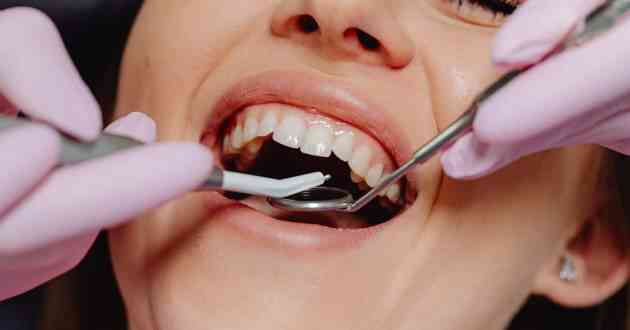Is Tooth Whitening Safe?
- - Category: Dental Care
- - 22 Apr, 2019
- - Views: 720
- Save
A bright and dazzling smile is a dream of everyone
The good news is that this is very much achievable, thanks to the booming business of teeth whitening. From in-office bleaching treatments to over-the-counter do-it-yourself whitening products, you now have numerous options to brighten up your darkened or stained teeth.
Generally, teeth whitening is safe. For as long as you do not use tooth bleaching products more often than what is recommended on the label, you should have nothing to worry about. However, numerous research has shown that these products wear away small amounts of tooth enamel over time, which can lead to tooth sensitivity and even tooth decay.
The active ingredient in teeth whitening products is carbamide peroxide that breaks down into hydrogen peroxide in the mouth. It does not increase your risk for oral cancer – which is something that was initially of concern to many people – but it does make the teeth more sensitive for up to 78 percent of people who had their teeth whitened.
Hydrogen peroxide soaks from the protective outer enamel coating into the softer dentin layer underneath, irritating the nerves in the dental pulp at the tooth’s core. Microscopic leaks and cracks along dental fillings increase your chances of acquiring tooth sensitivity. About half of people using whitening trays experience some gum irritation, although this is temporary.
Although tooth whitening is considered to be generally harmless, you might still experience some side effects from the treatment – whether you get the procedure done at home with a DIY kit or on the dentist’s chair. It helps to know what these common side effects are so you will know what to expect after the procedure and how to work around it accordingly.
- Tooth sensitivity. Following teeth whitening, you might notice that your teeth have become more sensitive. You are bound to experience this during your first or second session, but rest assured that this will diminish with time. Your dentist might recommend that you treat this sensitivity with products that contain sodium fluoride and potassium nitrate.
- Gum irritation. You should also expect some amount of gingival irritation, which happens when your gums become irritated. Gum irritation is a result of contact with the whitening product and should go away after a few treatments. In the meantime, try to go easy with your mouth first, and avoid taking in too cold or too hot beverages.
Remember that you cannot whiten your teeth on a permanent basis. You will have to seek tooth whitening treatments every so often for both intrinsic and extrinsic discoloration. Take note that these products are used for natural teeth. Talk to your dentist on ways to unify the color of your teeth if you have dentures, bridges, crowns or implants.
It is also important to keep in mind that keeping your pearly whites in their brightest will require touch-ups for a more prolonged effect. Those who are pregnant or nursing are advised by experts to avoid tooth whitening altogether because a swallowed whitening chemicals can have a potential impact on the developing fetus or the breastfeeding baby.
You Can Also Read More Article here. D. Dental Blog



